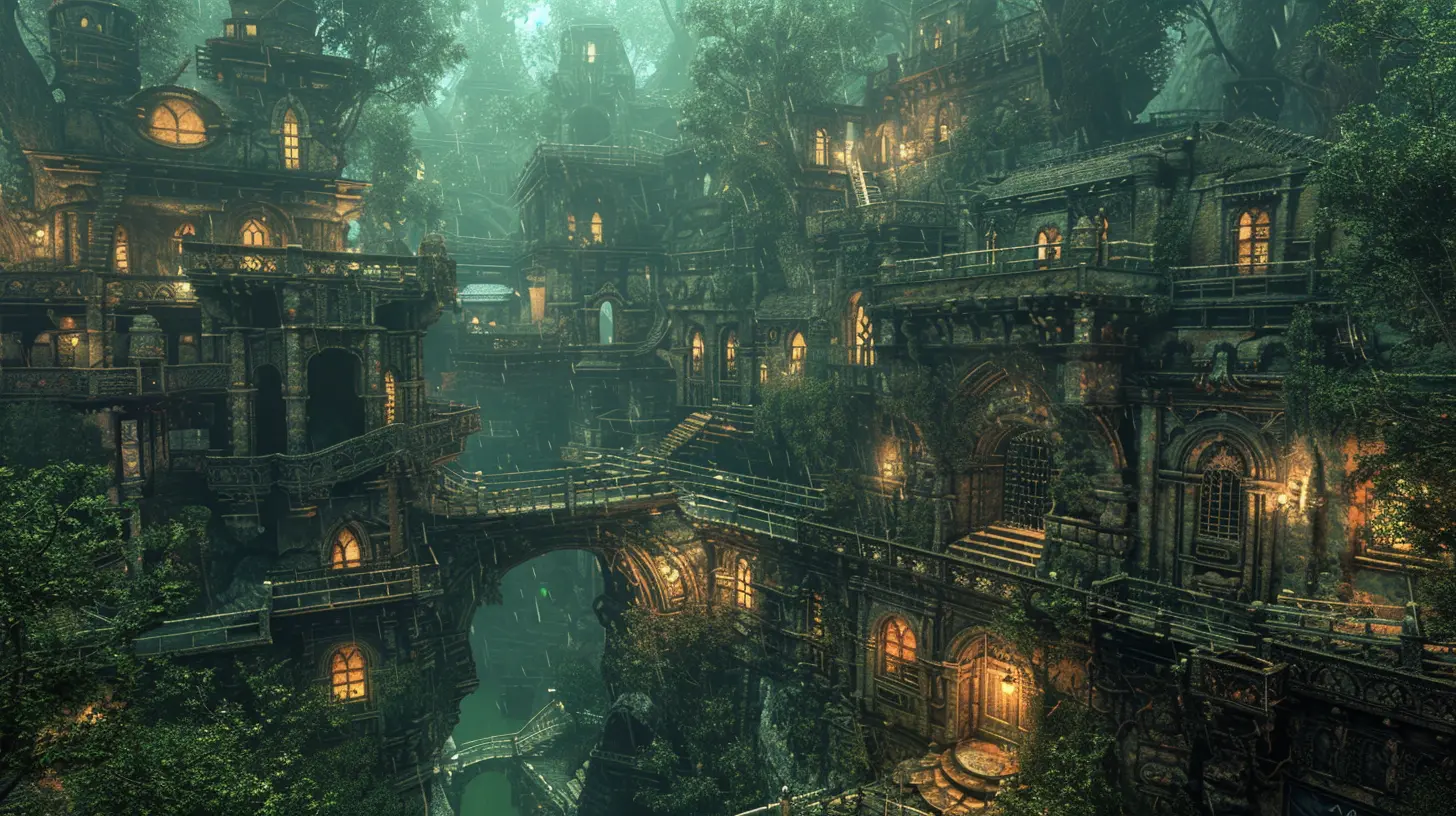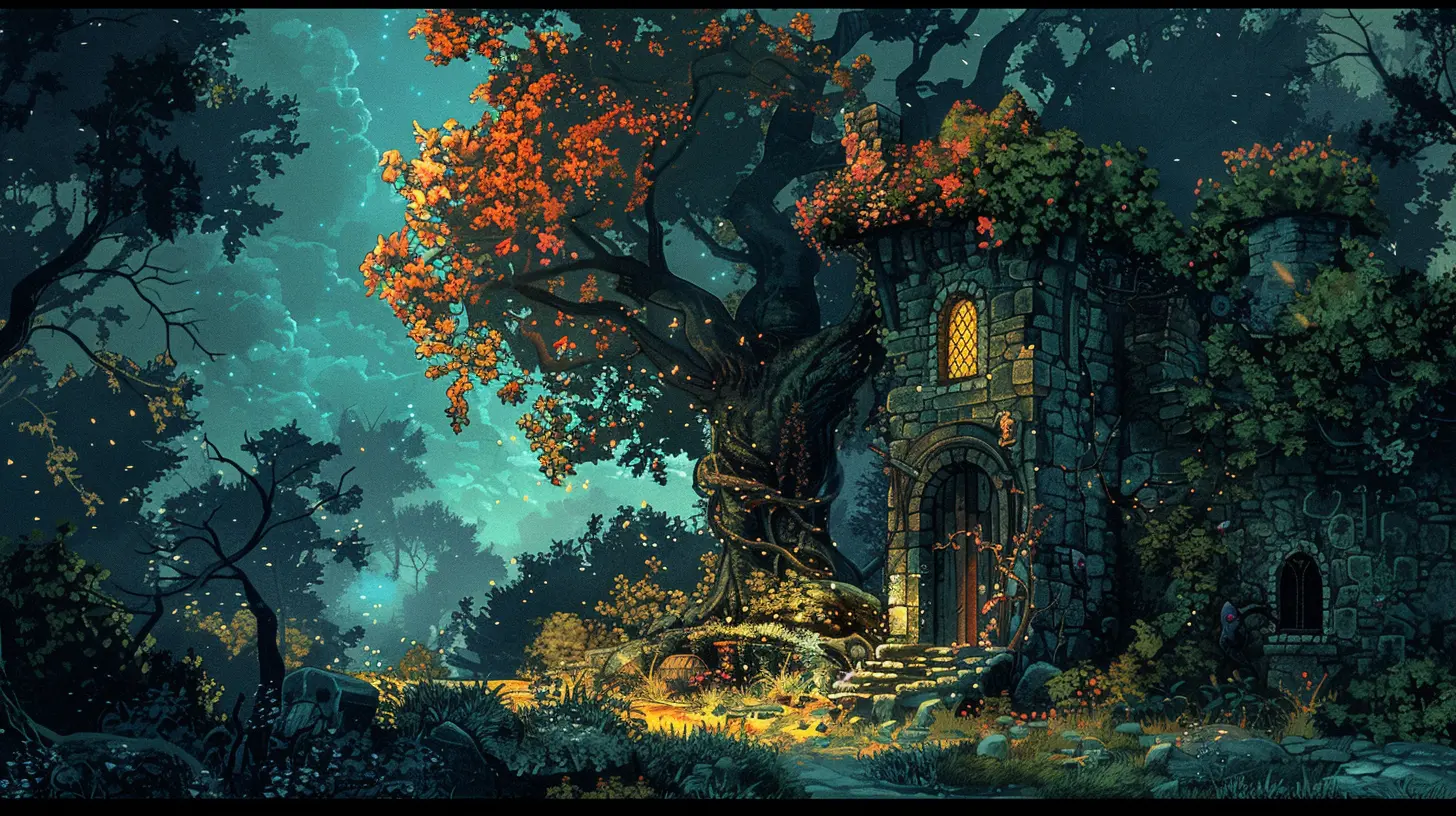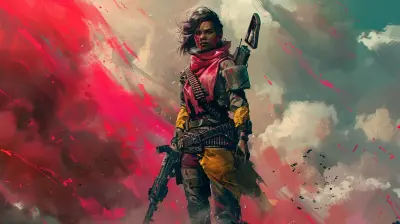The Role of Puzzles in Advancing Fantasy Game Narratives
30 May 2025
Ever played a game where solving a puzzle made you feel like a genius? Yeah, me too. Puzzles in fantasy games are like little brain teasers sprinkled into an already epic journey. They make you pause, think, and sometimes scream in frustration—but let’s be honest, the “aha!” moment afterwards is so worth it.
But puzzles aren’t just there to slow you down or fill out gameplay time. Oh no, they play a much bigger role than that. When done right, puzzles can elevate a game’s narrative, immerse players into the fantasy world, and even connect us emotionally to the storyline. So, let’s dive deep into how puzzles in fantasy games aren’t just obstacles—they’re actually narrative tools in disguise. 
Why Puzzles and Fantasy Games Go Hand in Hand
Fantasy games already whisk us off to mind-blowing worlds filled with magic, myths, and mysteries. But wouldn’t those worlds feel flat if they were just a series of battles and cutscenes? That’s where puzzles come in.Puzzles fit naturally into fantasy settings because they align with the genre's sense of mystery and wonder. A crumbling ancient ruin? You bet there’s some magical mechanism keeping the treasure locked away. A wizard's lair? Surely only those worthy enough to crack an arcane code can enter.
These moments don’t just test your problem-solving skills—they immerse you in the world. They force you to interact with your environment and think like your character. It’s like being part of an interactive fantasy novel where you help write the next chapter by figuring things out. 
How Puzzles Expand the Narrative
1. World-Building Through Interactivity
Let’s talk about world-building. Every great fantasy game relies on creating a world that feels alive, mysterious, and rich with history. Puzzles are fantastic tools for adding depth to that world.Think about it. When you solve a riddle written by a long-dead civilization, you’re not just moving to the next level—you’re learning about the culture, their belief systems, and sometimes even their downfall. That ancient tablet you pieced together might reveal some cryptic prophecy, making you curious about what’s coming next in the story.
Games like The Legend of Zelda franchise do this brilliantly. Each puzzle feels like it belongs in its environment. Whether it’s figuring out how to manipulate water levels in ancient temples or positioning mirrors to reflect sunlight, you’re constantly engaging with the world in meaningful ways.
2. Character Development Through Challenges
Believe it or not, puzzles can also give us insight into characters—both the heroes we play and the villains we face.When your character tackles a particularly tricky puzzle, it shows us who they are beyond just swinging swords or casting fireballs. Are they resourceful? Patient? Determined? These small moments of problem-solving can humanize characters, making them more relatable.
And let’s not forget villains! Ever faced a game boss who leaves behind a series of devilishly clever puzzles for you to solve? It’s as if they’re taunting you, showing off their intelligence and highlighting the danger they pose. Games like Portal with GLaDOS or Tomb Raider with its ancient guardians prove that puzzles can add personality to antagonists.
3. Driving the Story Forward
Puzzles aren’t just for fun—they're also fantastic tools for storytelling. They can reveal hidden plot points, unlock new areas, or even act as narrative milestones.Imagine this: You’re playing a game and stumble upon a riddle guarding a mysterious door. Solving it reveals a secret about the protagonist’s past or opens a portal to an entirely new realm. Suddenly, the stakes feel higher, and you’re more invested in the story.
Take God of War (2018), for instance. Many of the puzzles Kratos and Atreus face are tied directly to Norse mythology. They’re not just button-mashing moments; they’re opportunities to uncover lore, strengthen the father-son bond, and deepen the overall narrative. 
The Emotional Impact of Puzzles
Sure, puzzles challenge your brain, but they also tug at your emotions in ways you might not notice at first.A Sense of Accomplishment
Let’s be real—nailing a tough puzzle feels absolutely amazing. It’s that dopamine rush, that fist-pump-worthy triumph that keeps us hooked. In a fantasy setting, this sense of achievement feels even more profound because it often aligns with the hero’s journey. You’re not just solving a puzzle; you’re proving your worth in the face of ancient magic or divine forces.Immersion Through Interaction
Unlike a passive cutscene, puzzles force you to actively engage with the narrative. You’re not just watching the story unfold—you’re playing a role in it. That moment where you align the glowing runes just right or figure out the perfect order of levers? It’s like you’re cracking a code to the story itself.Building Tension and Suspense
Some puzzles are designed to make your heart race. Maybe the ceiling is slowly collapsing while you’re racing to find the right combination of buttons. Maybe a shadowy figure is closing in, and solving the puzzle is your only way out. These moments amplify the stakes, making the narrative feel more intense and alive.
What Makes a Great Puzzle in Fantasy Games?
Not all puzzles are created equal. Some are too easy, leaving players feeling underwhelmed, while others are so obtuse they make you want to rage-quit. So, what separates the good puzzles from the bad?1. Context is Key
A great puzzle feels like a natural part of the world, not something slapped on as an afterthought. It should make sense within the game’s lore and narrative. Why would a mystical forest have a sliding block puzzle? Unless it’s tied to some ancient druidic tradition, it probably doesn’t belong there.2. Balance
The best puzzles strike a balance between challenge and accessibility. They should make you think but not leave you hopelessly stuck. Games like The Witness or Horizon Zero Dawn excel at this—offering puzzles that make you work for the solution without breaking your spirit.3. Variety
Nobody likes repetitive tasks, right? A fantasy game with puzzles should keep things fresh. Maybe one moment you’re deciphering a cryptic poem, and the next, you’re rotating statues to redirect moonlight. The more diverse the puzzles, the more engaging the experience.Puzzles as Storytelling Devices in Modern Fantasy Games
Let’s take a moment to appreciate how modern fantasy games use puzzles as storytelling devices. Developers today are blending gameplay with narrative in ways that weren’t possible decades ago.For instance, games like Elden Ring and Dark Souls are packed with environmental puzzles that make you piece together fragmented bits of lore. These games don’t hand you the story on a silver platter—you earn it by paying attention, solving puzzles, and exploring every nook and cranny.
Similarly, The Witcher 3: Wild Hunt uses puzzles in quests to deepen the narrative. Whether you’re solving magical clues on a quest to lift a curse or decoding ancient inscriptions to find buried treasure, these moments make the player feel like a detective in a richly woven fantasy novel.
Wrapping It All Up
So, next time you encounter a puzzle in a fantasy game, don’t roll your eyes or groan in frustration (okay, maybe just a little). Remember that it’s there for a reason. Puzzles aren’t just there to test your smarts—they’re a vital piece of the storytelling puzzle (pun intended).They help build worlds, flesh out characters, and drive the narrative forward in ways that are both challenging and satisfying. They immerse us, frustrate us, and ultimately reward us in ways that few other gameplay elements can.
At the end of the day, puzzles are like the glue that holds fantasy games together. They make the worlds richer, the adventures deeper, and the stories more unforgettable. And honestly, who doesn’t love feeling like a genius adventurer, even if just for a moment?
all images in this post were generated using AI tools
Category:
Fantasy GamesAuthor:

Stephanie Abbott
Discussion
rate this article
3 comments
Bernadette Wolf
Great insights on how puzzles enrich fantasy game narratives! They not only engage players but also deepen immersion. Looking forward to seeing more innovative puzzle designs in future titles!
June 11, 2025 at 3:31 AM

Stephanie Abbott
Thank you! I'm glad you enjoyed the insights. Puzzles truly do enhance narrative depth, and I’m excited to see where game developers take them next!
Velma Franco
What a fantastic read! Puzzles truly elevate fantasy game narratives, weaving challenges that engage players and deepen the storyline. They add layers of fun and intrigue, making every moment an adventure! Can’t wait to see how future games incorporate these clever elements! 🎮✨
May 31, 2025 at 5:05 AM

Stephanie Abbott
Thank you! I'm glad you enjoyed it. Puzzles indeed enrich the narrative and enhance player engagement. Exciting times ahead for future games! 🎮✨
Theo Elliott
Great article! It’s fascinating to see how puzzles not only challenge players but also deepen the storytelling in fantasy games. They engage our minds and emotions, creating memorable experiences that resonate long after the game ends. Keep exploring this dynamic; it truly enhances our connection to the narrative!
May 30, 2025 at 4:18 PM

Stephanie Abbott
Thank you! I'm glad you enjoyed the article. I completely agree—puzzles really do enrich the storytelling experience in fantasy games!



